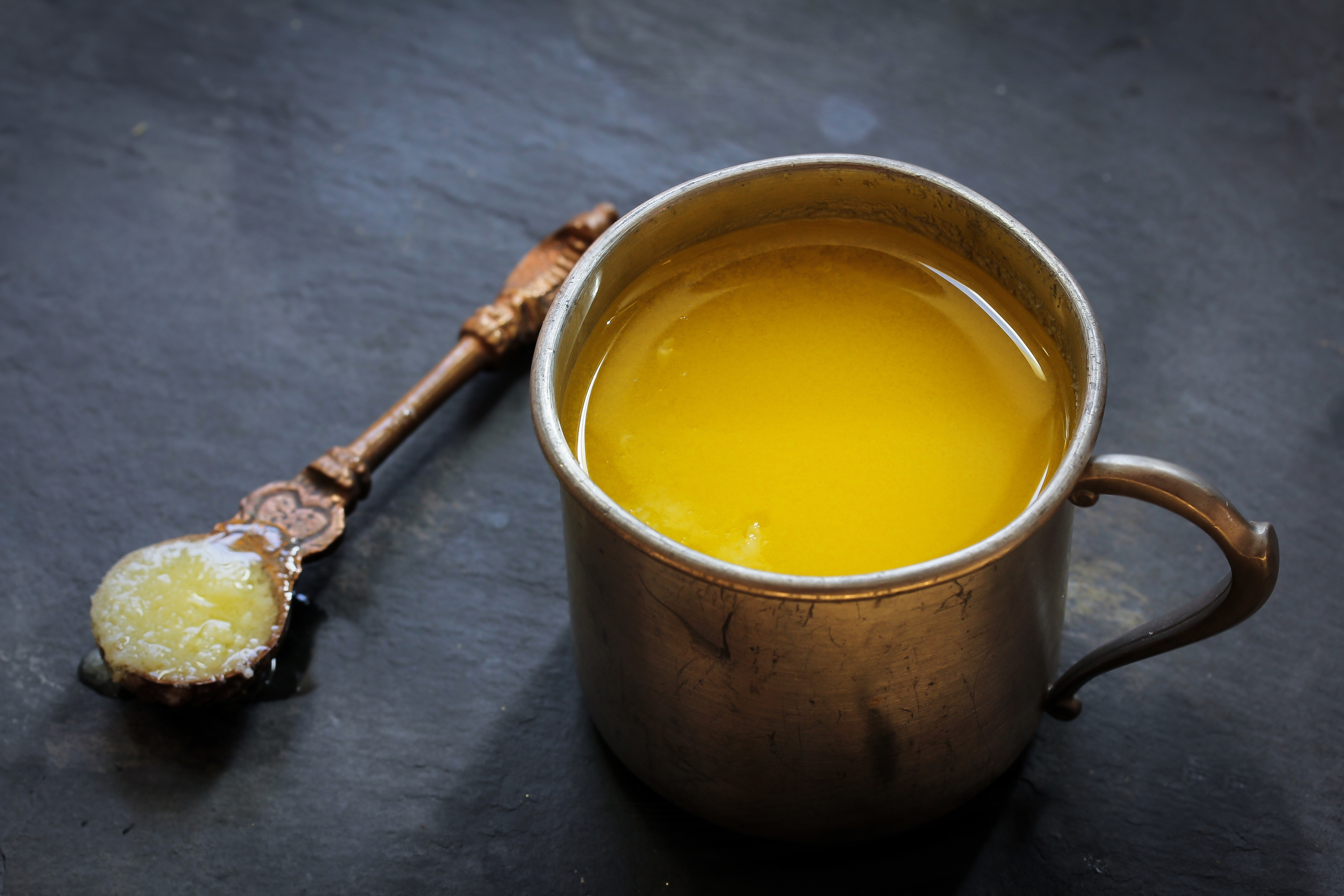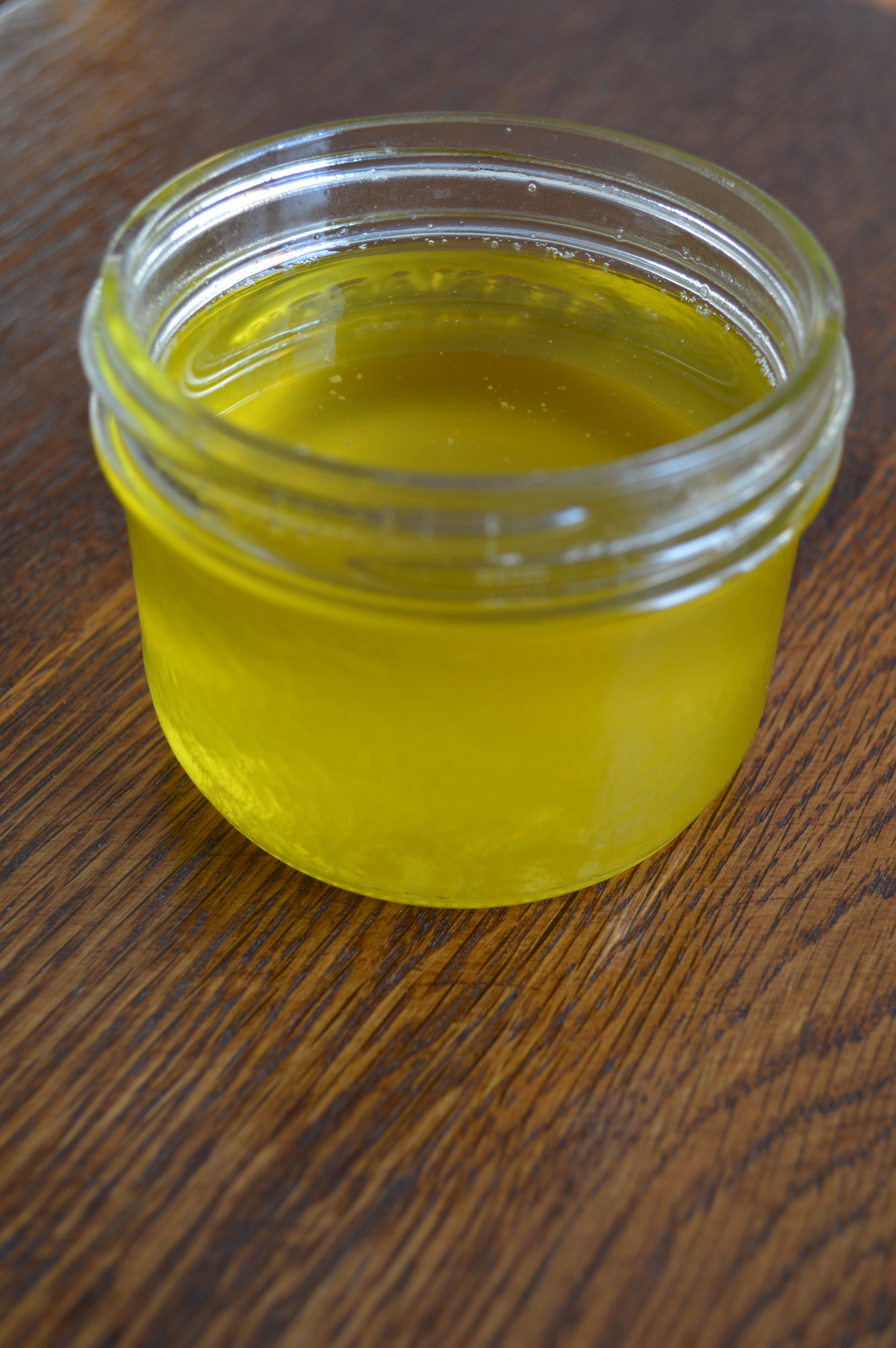

It has negligible amounts of lactose and casein and is, therefore, acceptable to most who have a lactose intolerance or milk allergy. Clarified butter also has a much longer shelf life than fresh butter. The water evaporates, some solids float to the surface and are skimmed off, and the remainder of the milk solids sink to the bottom and are left behind when the butter fat (which would then be on top) is poured off.Ĭommercial methods of production also include direct evaporation, but may also be accomplished by decantation and centrifugation followed by vacuum drying or direct from cream by breaking the emulsion followed by centrifugation.Ĭlarified butter has a higher smoke point (485 ☏ or 252 ☌) than regular butter (325-375 ☏ or 163-190 ☌), and is therefore preferred in some cooking applications, such as sautéing. Typically, it is produced by melting butter and allowing the components to separate by density. “The potential compounds that ghee contains are not significant enough to improve your health.Clarified butter is milk fat rendered from butter to separate the milk solids and water from the butterfat. O’Neill says choosing ghee should be a matter of personal preference and not based on any perceived health benefits. But again, ghee only has insignificant amounts of it.” The bottom line? “Ghee and butter also have a compound called conjugated linoleic acid (CLA), which may help reduce fat mass. But it’s in trace amounts, so if you’re looking to get MCT oil in your diet, ghee’s not the best way to go,” says O’Neill. “Ghee contains medium-chain triglyceride (MCT) oil, which some research suggests could help with weight loss. It’s not hard to find a blog claiming ghee is a metabolism-booster. That’s the better way to improve colon health.” Q. These foods help your body ramp up the production of short-chain fatty acids.

“You can also get a good amount of short-chain fatty acids from eating fiber-rich foods, such as fruits, vegetables, whole grains and legumes. “Ghee has about 1% of butyrate, which is a tiny, insignificant amount compared to what your colon produces,” she says. Some herald ghee as a rich source of butyrate, but O’Neill says not so fast. This process is important for colon health and digestion. Butyrate is the main energy source for the cells that line your colon and helps them regenerate. Dairy products contain a compound called butyrate, which is a type of short-chain fatty acid. Is ghee better for digestion and colon health?Ī. “If you have a casein allergy, you should definitely avoid consuming both in case of cross-contamination.” Q. But in general, they should be fine with butter as well because the amounts of lactose and casein are so small,” notes O’Neill. “Some people who avoid dairy for digestive reasons may tolerate ghee better than butter. That’s because it contains extremely low levels of lactose and casein (a milk protein).
/ghee-56a5107f3df78cf772862bc1.jpg)
It’s not dairy-free, though ghee may be a good choice for people who are lactose-intolerant. O’Neill clarifies three common health claims about ghee butter. The fat and vitamin content is almost the same.” “There is no significant difference between the two. While some tout ghee as butter’s healthier cousin, O’Neill says that ghee’s perceived benefits may be overblown. “But if you’re buying a jar of ghee from a grocery store, you may want to mix before using it because it can separate.”Īdvertising Policy Ghee vs. O’Neill recommends using ghee like butter. “Many people also enjoy ghee because it has a higher smoke point (the temperature during cooking when the oil starts smoking) than butter.” “It has a nuttier, richer taste than butter,” says O’Neill. In traditional Indian and East Asian cooking, ghee has been a go-to for centuries. What’s left - the ghee - is fat that’s even more concentrated,” says O’Neill. “Ghee is clarified butter, which means it’s heated to the point where manufacturers can remove any remaining water and caramelized milk solids. When you churn milk or cream long enough, it separates into two components: butterfat (solid) and buttermilk (liquid). butter debate, there’s a lot of misinformation out there about ghee being the better choice.” What is ghee? “Some research has shown that people who consume ghee butter in traditional ways may have lower risks of heart disease,” says registered dietitian Candace O’Neill. We do not endorse non-Cleveland Clinic products or services.

Advertising on our site helps support our mission. Cleveland Clinic is a non-profit academic medical center.


 0 kommentar(er)
0 kommentar(er)
